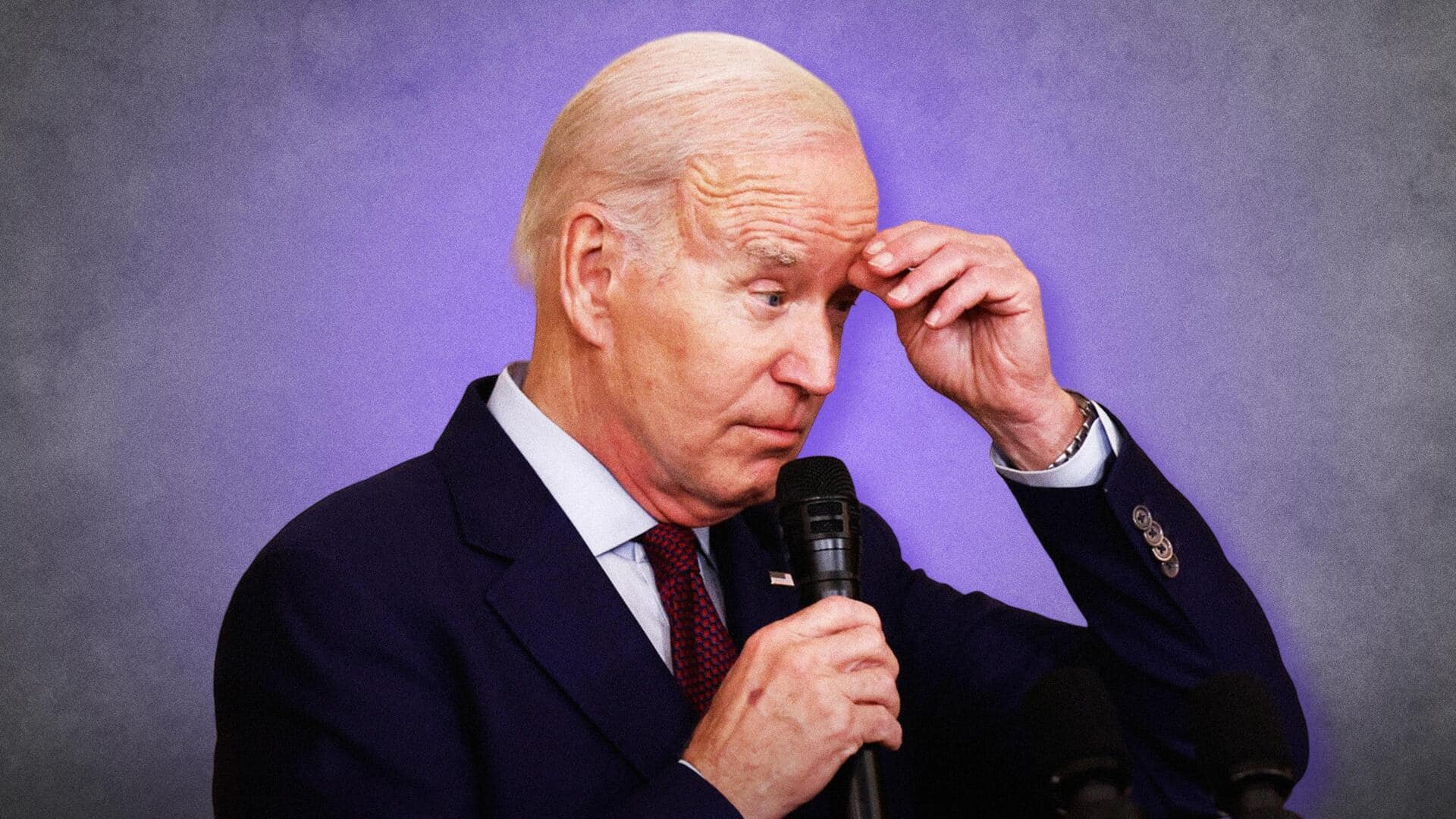
Report says Biden 'willfully' retained classified documents; he hits back
What's the story
A special counsel investigation has accused United States (US) President Joe Biden of "wilfully retaining and disclosing classified materials" regarding Afghanistan's military and foreign policies.
He will not, however, face charges as it is tough to convict him due to his image as an "elderly man with a poor memory," Special Counsel Robert Hur said.
Criticizing the 345-page report, Biden, in a surprise news briefing on Thursday evening said, "My memory is fine."
Context
Why does this story matter?
Hur's report ensures that Biden, unlike former President Donald Trump, will not face prison time for mishandling sensitive government documents.
The 46th American president will, nonetheless, face a difficult time convincing voters that he can serve another four-year term considering his alleged "mental decline."
Meanwhile, Trump, who is emerging as the potential Republican presidential candidate, is facing a 40-count federal indictment for allegedly retaining highly secret national security documents at his Florida home after leaving office in 2021.
Biden's files
Details of the special counsel report
The report by Special Counsel Hur was released after a year-long investigation into files discovered at Biden's residence and former private office spanning 2022-23.
The investigation said the documents were classified as "Top Secret," and were related to Afghanistan.
The files included Biden's notebooks with entries about national security and foreign policy matters, which involved "sensitive intelligence sources and methods."
The report criticized Biden for sharing some of the sensitive material in those notebooks with a ghostwriter for his memoir.
Investigation process
Investigation process and findings
The report was made public on Thursday after the White House said it would not request any redactions.
Investigators conducted 173 interviews with 147 witnesses, including Biden, as part of the investigation.
Hur said that Biden could not recollect when he was the vice president (2009-2017) or "even within several years, when his son Beau died."
Nonetheless, prosecuting him would be challenging since "Biden would likely present himself to a jury...as a sympathetic...elderly man with a poor memory," it said.
White House response
White House responds to report
Hur wrote that Biden's actions "present serious risks to national security, given the vulnerability of extraordinarily sensitive information to loss or compromise to America's adversaries."
However, he stated that the documents may have been taken to his residence while he was vice president and had the power to keep such documents.
Separately, White House counsel Richard Sauber questioned the report's portrayal of President Biden's memory, calling it "highly prejudicial language" used to describe a failure to recall years-old incidents.
Ghostwriter involved
Ghostwriter's involvement and Biden's motive
The White House attorneys also said Biden found a small number of classified documents and turned them over after the discovery.
Simultaneously, ghostwriter Mark Zwonitzer, with whom Biden disclosed classified documents for his 2018 memoir, "Promise Me, Dad," deleted audio recordings of discussions with Biden after learning of the investigation.
Biden welcomed the decision not to charge him during a Democratic retreat in Leesburg, Virginia, on Thursday, saying, "This matter is now closed."
More gaffes
Biden mixes up Mexican and Egyptian leaders
Ironically, just hours after saying his memory is fine, Biden appeared to confuse Mexican President Andrés Manuel López Obrador with Egyptian President Abdul Fattah al-Sisi.
He also caused fresh concern about his well-being after appearing to forget the word Hamas during a press conference on Tuesday.
When asked about hostage negotiations between Hamas and Israel, Biden appeared confused, disoriented, and pausing.
"There's been a response from the opposition, but, um...," he said, struggling to find the word for Hamas.